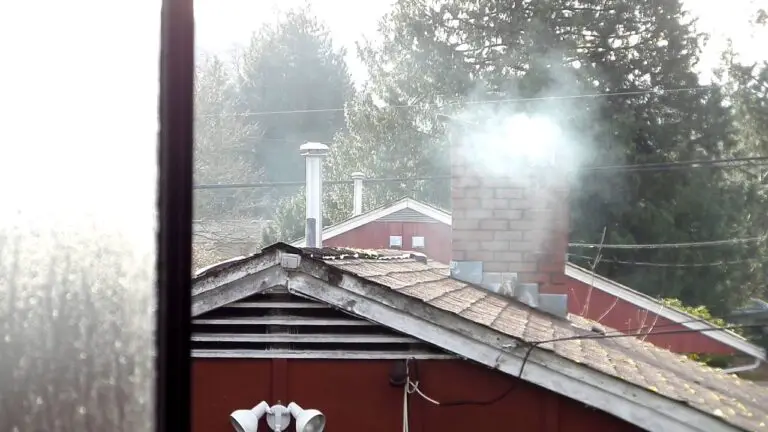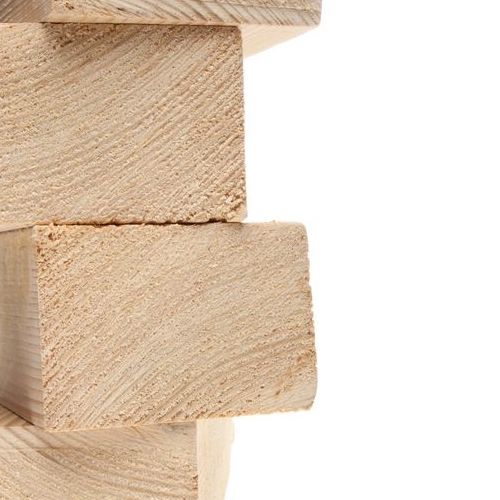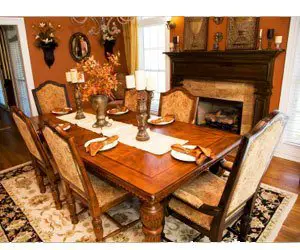Should I Convert My Wood Burning Fireplace to Gas: The Ultimate Guide
Many homeowners with wood burning fireplaces find themselves asking whether they should convert to a gas fireplace. With the convenience and efficiency of gas fireplaces, as well as the environmental benefits, it’s a decision worth considering. In this article, we’ll explore the factors to consider when deciding whether to convert your wood burning fireplace to gas.
Convenience and Ease of Use
One of the main reasons homeowners choose to convert to a gas fireplace is the convenience and ease of use. Gas fireplaces can be turned on and off with the flip of a switch or the press of a button, providing instant warmth and ambiance without the need to build and maintain a wood fire. This convenience can be especially appealing for those with busy schedules or mobility issues.

Credit: forgenflame.com
Environmental Impact
Another important factor to consider is the environmental impact of your fireplace. Wood burning fireplaces can contribute to air pollution and particle emissions, which can have negative effects on air quality and public health. In contrast, gas fireplaces produce fewer emissions and pollutants, making them a more environmentally friendly option.
Cost and Efficiency
When considering a fireplace conversion, it’s important to weigh the cost and efficiency of both wood and gas fireplaces. While the initial cost of converting to gas may be higher, gas fireplaces are generally more energy efficient and can result in lower utility bills in the long run. Additionally, the convenience of gas may lead to increased usage and enjoyment of your fireplace.
Maintenance and Upkeep
Wood burning fireplaces require regular cleaning and maintenance to remove creosote buildup and ensure safe operation. Gas fireplaces, on the other hand, generally require less maintenance and upkeep, which can save time and effort for busy homeowners.
Aesthetics and Ambiance
Many homeowners love the crackling sound and smoky aroma of a wood burning fire, which can create a cozy and nostalgic ambiance. Gas fireplaces may not provide the same sensory experience, but they offer consistent and controllable flames, as well as a variety of design options to suit different aesthetics.
Resale Value
Finally, it’s important to consider the impact of a fireplace conversion on the resale value of your home. While some homebuyers may prefer the traditional charm of a wood burning fireplace, others may prioritize the convenience and cleanliness of a gas fireplace. Ultimately, the decision should align with your own lifestyle and preferences, but it’s worth considering the potential impact on your home’s marketability.
Frequently Asked Questions For Should I Convert My Wood Burning Fireplace To Gas: The Ultimate Guide
Should I Convert My Wood Burning Fireplace To Gas?
Converting to a gas fireplace can improve convenience and efficiency while reducing environmental impact.
What Are The Benefits Of Converting To A Gas Fireplace?
Gas fireplaces are easier to use, cleaner, and more convenient than traditional wood-burning fireplaces.
Is It Expensive To Convert A Wood Burning Fireplace To Gas?
The cost can vary, but the convenience and efficiency of a gas fireplace can make it a worthwhile investment.
Will Converting To Gas Affect The Aesthetics Of My Fireplace?
Today’s gas fireplace options can provide realistic flames and stunning designs, maintaining the aesthetic appeal of your fireplace.
Conclusion
Converting a wood burning fireplace to gas is a decision that involves several important considerations, including convenience, environmental impact, cost, maintenance, aesthetics, and resale value. While each homeowner’s situation is unique, it’s clear that gas fireplaces offer several advantages in terms of convenience, efficiency, and environmental friendliness. Ultimately, the choice to convert to gas should align with your own priorities and lifestyle, as well as the needs and preferences of your household.
Before making a decision, it’s advisable to consult with a professional fireplace installer or technician to assess the feasibility and costs of a conversion, as well as any local building codes or regulations that may apply.





